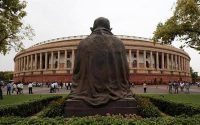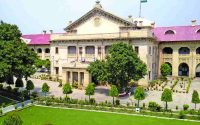$100 Website Offer
Get your personal website + domain for just $100.
Limited Time Offer!
Claim Your Website NowAllahabad HC advocates boycott court, join state-wide lawyers” strike over their security
Source: outlookindia.com
Allahabad, Jul 29 The Allahabad High Court advocates on Monday boycotted court proceedings, demanding security for lawyers and safer working conditions in court premises.
The high court lawyers struck work, joining the state-wide strike by the legal fraternity in response to a call given by the Bar Council of Uttar Pradesh in the wake of a spate of attacks on lawyers in the state.
About 3.5 lakh lawyers across Uttar Pradesh struck work on Monday.
The strike came over a month after the cold-blooded murder of Darwesh Yadav, the first woman bar council president in Uttar Pradesh. She was murdered allegedly by her own colleague Manish Sharma on June 12 in Agra Court premises.
Sharma pumped three bullets and later committed suicide.
There have been sporadic incidents of attacks on members of the legal fraternity.
Earlier this month, a Supreme Court lawyer was found murdered in her residence at Noida.
The wife of a retired Army officer, advocate Kuljeet Kaur”s body was found in her house in Noida on July 3.
Last month on June 20, a lawyer on his way to court in Mathura was assaulted by four persons over some personal enmity.
In its resolution passed for the strike, the Bar Council had also demanded the release of fund for various welfare schemes of lawyers by the state government, which, according to the Council, has not been released for the last two years.
The Allahabad High court Bar Association in its meeting held on Friday, also added another demand of establishment of three tribunals — GST Appellate Tribunal, Education Tribunal and the State Service Tribunal — at the seat of the principal bench of the high court in Allahabad.
In its resolution, the high court bar association argued that benches of various tribunals could be set up at other places, but the principal benches of these tribunals must be set up at Allahabad.
In support of their demand, the advocates” association also cited a high court ruling which said various tribunals should be set up at places where the principal seat of the high court is located.



